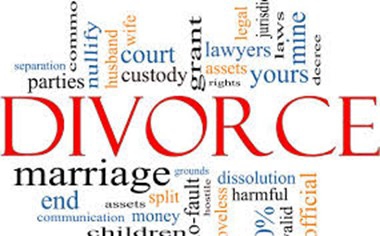Divorce can be emotional, confusing, and overwhelming. One of the first and most important decisions you’ll face is whether your divorce will be contested or uncontested.
This distinction determines how much time your case will take, how much it may cost, and how much control you and your spouse will have over the outcome.
As a medically trained New York divorce attorney and court-appointed divorce mediator, I’ve helped hundreds of couples navigate both paths successfully. Let’s break down what each means, what counts as an uncontested divorce, and how my psychologically based approach can make either process less painful.
What Is an Uncontested Divorce?
An uncontested divorce in New York is the simplest and least stressful type of divorce. It means that both spouses agree on every key issue, including:
- Division of assets and debts
- Spousal maintenance (alimony)
- Child custody and visitation
- Child support
- Any other financial or personal arrangements
If you and your spouse see eye-to-eye on these matters, or can reach an agreement through negotiation or mediation, you can file for an uncontested divorce.
In New York, most couples use the “no-fault” ground for divorce, meaning the marriage has been “irretrievably broken” for at least six months. This approach avoids blame and focuses on resolution.
Benefits of an Uncontested Divorce
- Faster Resolution: Many uncontested divorces in New York are finalized in a few months.
- Lower Cost: Since you’re avoiding litigation, legal fees are substantially reduced.
- More Privacy: Court involvement is minimal; much of the process can be handled discreetly.
- Less Stress: You control the process instead of letting a judge decide your future.
However, an uncontested divorce only works if both spouses are honest, cooperative, and transparent about finances and child-related matters. If one spouse refuses to participate or conceals assets, the case may become contested.
What Is a Contested Divorce?
A contested divorce means the spouses cannot agree on one or more important issues. This can involve:
- How to divide marital property or debt
- Whether one spouse should receive support and how much
- Custody, visitation, or parenting time
- The value of a business or home
- Even whether to get divorced at all
In a contested case, the court must step in to resolve disputes. This process involves multiple legal steps like filings, conferences, discovery, motions, and possibly a trial. Contested divorces often take longer and cost more, but they can be necessary when communication or trust has broken down.
Key Differences Between Contested and Uncontested Divorce
Category | Uncontested Divorce | Contested Divorce |
Agreement | Both parties agree on all issues | One or more issues are disputed |
Court Involvement | Minimal—court reviews paperwork | Significant—judge decides unresolved matters |
Timeline | Often finalized in a few months | Can take many months or even years |
Cost | Lower, due to no court appearances | Higher, more filings, hearings, and attorney time |
Emotional Impact | Generally less stressful | Often more conflict and tension |
Control | Couples decide terms together | Judge decides contested issues |
When an Uncontested Divorce Becomes Contested
Even when both spouses start with the best intentions, disputes can arise. Common reasons include:
- A disagreement over property valuation
- Hidden financial accounts or assets
- Disputes about child custody or parenting schedules
- Pressure from family or outside influence
- Emotional reactions that derail cooperation
If this happens, your case shifts from uncontested to contested, but that doesn’t mean all is lost. With the right legal guidance and a skilled mediator, many couples can return to productive negotiations and avoid lengthy litigation.
How I Can Help: Whether Your Divorce Is Contested or Uncontested
With over 35 years of experience as a New York divorce attorney, mediator, and psychologically trained medical professional, I offer clients both legal expertise and emotional insight.
If Your Divorce Is Uncontested:
- I can draft your settlement agreement to ensure it’s fair, comprehensive, and enforceable.
- I guide clients and provide the drafting and filing of documents, so nothing is missed.
- I help identify potential issues before they become problems, protecting you from future disputes.
If Your Divorce Is Contested:
- I’ll advocate for you along with my team of litigators and professionals in court with skill, strategy, and compassion.
- I help clients navigate complex financial and custody issues while keeping emotions in check.
- We explore opportunities for mediation or settlement conferences to reduce cost and conflict wherever possible.

As both a NY divorce lawyer and psychologically trained mediator, I understand the emotional triggers that can derail negotiations. My approach helps couples communicate more effectively, rebuild trust, and reach resolution, even in high-conflict situations.
This combination of legal skill and psychological insight allows me to help clients achieve calmer, faster, and more balanced divorces.
If you and your spouse can cooperate and communicate, an uncontested divorce is often the most efficient and least painful option. But if trust has broken down, or one spouse refuses to be honest and reasonable, a contested divorce may be unavoidable.
Either way, you don’t have to go through it alone. I, along with my litigators, financial experts, psychological professionals, forensic accountants and private investigators will help you achieve the results you want!
Whether your divorce is contested or uncontested, I can help you navigate the process with clarity, confidence, and compassion.
My goal is to protect your financial security, emotional well-being, and future peace of mind.
Call now to schedule your free and confidential consultation 212.734.1551.
I look forward to helping you decide which path to take!
Warm regards,
Lois

